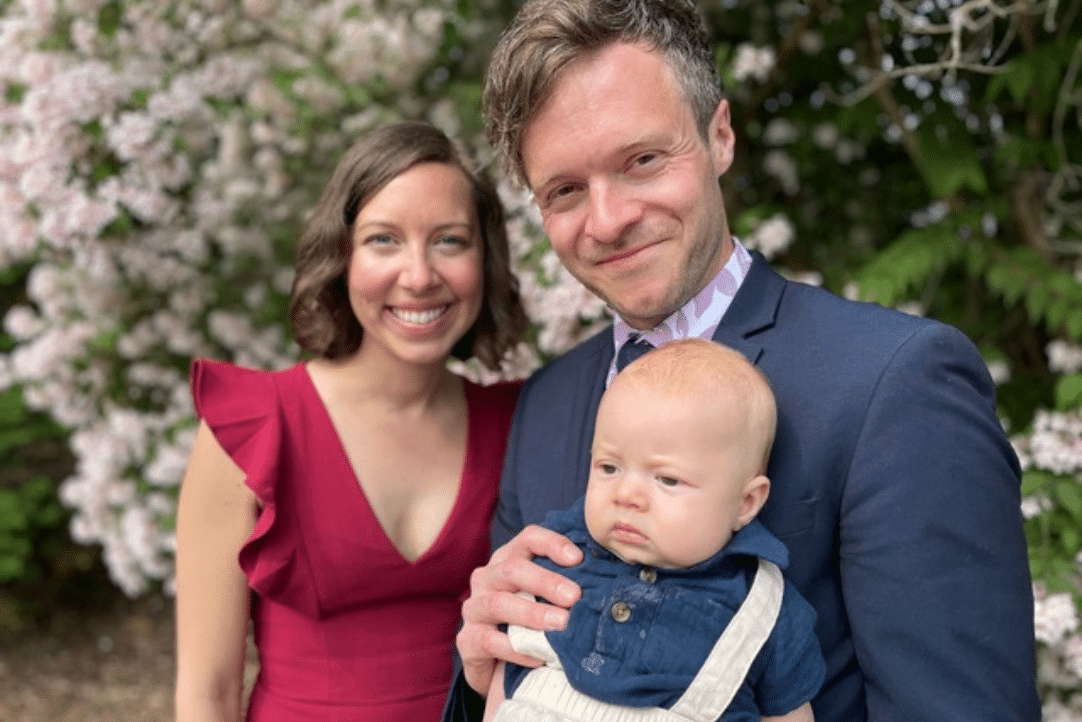NATE WALL-BOWERING
Assistant Professor of Old Testament, Providence Seminary

ABOUT NATE
Nate was born and raised in Saskatchewan. He earned a BA in Biblical Studies at Briercrest and a MTS in Old Testament at Wycliffe (U of T). Alongside of his teaching, Nate is completing a PhD doing doctoral research in the Old Testament and the sermons of 17th century poet-priest John Donne. When Nate is not working, he enjoys running, hiking, and skating. He also loves reading and cooking for friends and family.
Q: Why teach Old Testament at Providence?
The Bible is a wild and gorgeous place. I, basically, wake up looking for any chance to climb into its pages with others. Providence students are preparing to be pastors, counsellors, researchers and disciples of Jesus, and callings like these demand more resources than anybody has on their own. Helping students discover God and themselves inside scripture’s landscape and live their calling from inside its rich world is a privilege too big to pass up. There is also Providence’s location. For a prairie kid — born and raised in Manitoba’s flatter, drier neighbour — coming to Providence feels like coming home!
Q: What will students experience in your classes?
Pinning scripture down like a dead butterfly doesn’t gain us much. Let the thing live in the classroom, I say! Study it in full flight if you want to know what it really is.
Modern biblical scholarship — while a brilliant and impressive business — can get fusty. Some scholars treat the Old Testament as ancient literature and little else. Their students often learn to do the same. The thing is that Christians and Jewish readers of the past treated the Old Testament quite differently. For them, it was an evergreen book. The ‘back then’ of the Old Testament was always crashing into the ‘right now’ in their poems, sermons, and prayers. My great joy is helping students welcome that collision. One of the best ways to do that is by reading the Old Testament in the company of both the living and the dead.
I’m not someone who thinks the Old Testament interesting but expendable. If you ask me, it’s the fountain of the whole Christian life. Jesus, the New Testament, the bulk of church music and art, traditions of prayer and protest and social action — all of that bubbles up from the Old Testament! Why not drink deep from the source?
There’s nothing more practical than the Old Testament, after all. Life is precious and hard and completely bewildering. Only the Old Testament is big enough to wrap around the whole thing. Daunted by environmental crisis? Genesis, Hosea and Job have wisdom. Distracted or flatlined in prayer? Silence the phone and put Psalms, Lamentations, or Song of Songs on your lips and see what happens. Overwhelmed by parenthood? Slow sip on Proverbs, and sample Deuteronomy. Disillusioned by life’s grind? Let Ecclesiastes show the scenic route back to joy.
I could go on! The point is: the Old Testament is literature for living. In my classroom, we study these books as if our lives depend on them. And they really might.
Q: Can you describe publications or any other scholarly items that you’re particularly proud of?
One big question has driven my scholarship: “How does the Old Testament speak as Christian scripture?” Chasing an answer led me to study how Christians of the past made sense of the Bible, which is usually called “the history of biblical interpretation.” A lot of my writing and teaching so far has explored the way Christian poets (like St. John of the Cross, George Herbert, Anne Locke, and Christina Rossetti) interpreted the Old Testament.
My doctoral research zeroed in on a 17th century English writer named John Donne. (Lines like “No man is an island” and “Death be not proud” come from his writing.) People know Donne for his explosive poetry. But he was a preacher too, and his sermons were no less full of fireworks. The way Donne read scripture was daring and imaginative. In his sermons, biblical words and images ping-pong off each other and jump off the page to hit people and things past, and present, and future.
For Donne, Bible words couldn’t be pinned down to mean just one, or two, or three things; God’s words just keep going. Basically, I wanted to understand why. So, my dissertation tries to prove Donne read the Bible this way because of a deep theological conviction about God’s style—in other words, about the way God uses words, or what God’s voice sounds like. When it’s published it will be called The Sound of Many Waters: John Donne’s Exegesis of Abundance. A miniature version of my work can be found in a recently published book, All Thy Lights Combine: Figural Reading in the Anglican Tradition (Lexham, 2021).
The Pentateuch and the Song of Songs are ongoing interests. I have invested a good bit of time teaching those books, which are endlessly rich. The Pentateuch sets up the alphabet, basic vocabulary, and grammar of Christian God-talk. The Song of Songs comes second only to the Psalms in its influence on Christian worship and spirituality. Over the next couple years I plan to publish in those areas. A book on the Pentateuch is in the works right now, actually.
Q: What would you like to look back on at the end of the school year?
Apart from proving I can still endure January in the prairies? I hope my students can say they’ve gotten lost and then found again in the pages of the Old Testament. It’s always a great school year when by the end you and your students know each other by name and by story, and when you’ve prayed and laughed together a lot.

Q: What leisure activities do you enjoy outside the classroom?
My dad put skates on my feet almost as soon as I could walk, so the ice is an old friend. I’m looking forward to passing that baton to my son Beau. Off the ice, I’ve been slowly converted from sprinter to long distance runner, and I love hiking with my wife Julia. As an incurable bookworm, I like to read almost anything, I have a soft spot for poetry and whodunnits. Good days find me in the kitchen improvising a meal for company out of whatever’s at hand. And I’m quite happy behind a drum set, although chances to play come few and far between these days.
